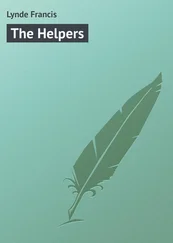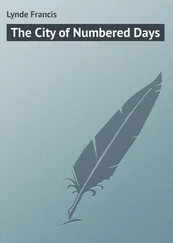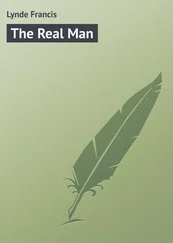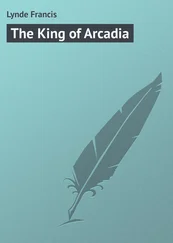Francis Lynde - The Dodd Family Abroad, Vol. I
Здесь есть возможность читать онлайн «Francis Lynde - The Dodd Family Abroad, Vol. I» — ознакомительный отрывок электронной книги совершенно бесплатно, а после прочтения отрывка купить полную версию. В некоторых случаях можно слушать аудио, скачать через торрент в формате fb2 и присутствует краткое содержание. Жанр: foreign_antique, foreign_prose, на английском языке. Описание произведения, (предисловие) а так же отзывы посетителей доступны на портале библиотеки ЛибКат.
- Название:The Dodd Family Abroad, Vol. I
- Автор:
- Жанр:
- Год:неизвестен
- ISBN:нет данных
- Рейтинг книги:3 / 5. Голосов: 1
-
Избранное:Добавить в избранное
- Отзывы:
-
Ваша оценка:
- 60
- 1
- 2
- 3
- 4
- 5
The Dodd Family Abroad, Vol. I: краткое содержание, описание и аннотация
Предлагаем к чтению аннотацию, описание, краткое содержание или предисловие (зависит от того, что написал сам автор книги «The Dodd Family Abroad, Vol. I»). Если вы не нашли необходимую информацию о книге — напишите в комментариях, мы постараемся отыскать её.
The Dodd Family Abroad, Vol. I — читать онлайн ознакомительный отрывок
Ниже представлен текст книги, разбитый по страницам. Система сохранения места последней прочитанной страницы, позволяет с удобством читать онлайн бесплатно книгу «The Dodd Family Abroad, Vol. I», без необходимости каждый раз заново искать на чём Вы остановились. Поставьте закладку, и сможете в любой момент перейти на страницу, на которой закончили чтение.
Интервал:
Закладка:
I don't quite approve of your plan for Ballyslevin. Whenever a property 's in Chancery, the best thing is to let it go to ruin entirely. The worse the land is, the more miserable the tenants, the cheaper will be the terms you 'll get it on; and if the boys shoot a receiver once or twice, no great harm. As for the Government, I don't think they 'll do anything for Ireland except set us by the ears about education and church matters; and we 're getting almost tired of quarrelling, Tom; for so it is, the very best of dispositions may be imposed on too far!
Now, as to "education," how many amongst those who insist on a particular course for the poor, ever thought of stipulating for the same for their own children? or do they think that the Bible is only necessary for such as have not an independent fortune? And as to Maynooth, is there any man such a fool as to believe that £30,000 a year would make the priests loyal? You gave the money well knowing what for, – to teach Catholic theology, not to instil the oath of allegiance. To expect more would be like asking a market-gardener to raise strawberries with fresh cream round them! The truth is, they don't wish to advance our interests in England. They 're afraid of us, Tom. If we ever were to take a national turn, like the Scotch, for instance, we might prove very dangerous rivals to them in many ways. I 'm sick of politics; not, indeed, that I know too much of what's doing, for the last "Times" I saw was cut up into a new pattern for a polka, and they only kept me the supplement, which, as you know, is more varied than amusing. In reply to your question as to how I like this kind of life, I own to you that it does n't quite suit me. Maybe I 'm too old in years, maybe too old in my notions, but it does n't do, Tom. There is an everlasting bowing and scraping and introducing, – a perpetual prelude to acquaintanceship that never seems to begin. It appears to me like an orchestra that never got further than the tuning of the instruments! I 'm sure that, at the least, I 've exchanged bows and grins and leers with fifty gentlemen here, whom I should n't know to-morrow, nor do they care whether I did or no. Their intercourse is like their cookery, and you are always asking, "Is there nothing substantial coming?" Then they 're frivolous, Tom. I don't mean that they are fond of pleasure, and given up to amusement, but that their very pleasures and amusements are contemptible in themselves. No such thing as field-sports; at least, nothing deserving the name; no manly pastimes, no bodily exercises; and lastly, they all, even the oldest of them, think that they ought to make love to your wife and daughters, just as you hand a lady a chair or a cup of tea in our country, – a mere matter of course. I need not tell you that my observations on men and manners are necessarily limited by my ignorance of the language; but I have acquired the deaf man's privilege, and if I hear the less, I see the more.
I begin to think, my dear Tom, that we all make a great mistake in this taste we've got into for foreign travel, foreign languages, and foreign accomplishments. We rear up our families with notions and habits quite inapplicable to home purposes; and we are like the Parisian shopkeepers, that have nothing on sale but articles of luxury; and, after all, we have n't a genius for this trifling, and we make very ungraceful idlers in the end. To train a man for the Continent, you must begin early; teach him French when a child; let him learn dominoes at four, and to smoke cigars at six, wear lacquered boots at eight, and put his hair in paper at nine; eat sugar-plums for dinner, and barley-water for tea; make him a steady shot with the pistol, and a cool hand with the rapier; and there he is finished and fit for the Boulevard, – a nice man for the salons .
It is cheap, there is no doubt; but it costs a great deal of money to come at the economy. You 'll perhaps say that's my own fault. Maybe it is. We 'll talk of it more another time.
I ought to confess that Mrs. D. is delighted with everything; she vows that she is only beginning to live; and to hear her talk, you 'd think that Dodsborough was one of the new model penitentiaries. Mary Anne's her own daughter, and she raves about princes and dukes and counts, all day long. What they 'll say when I tell them that we 're to be off on Wednesday next, I can't imagine. I intend to dine out that evening, for I know there will be no standing the row!
The Ambassador has been mighty polite and attentive: we dined there last week. A grand dinner, and fine company; but, talking French, and nothing but French, all the time, Mrs. D. and your humble servant were rather at a nonplus. Then we had his box at the opera, where, I must say, Tom, anything to equal the dancing I never saw, – indecency is no name for it. Not but Mrs. D. and Mary Anne are of a contrary opinion, and tauntingly ask me if I prefer a "Tatter Jack Walsh," at the cross-roads, to Taglioni. As for the singing, it's screeching, – that's the word for it, screeching. The composer is one Verdi, – a fellow, they tell me, that cracks every voice in Europe; and I can believe it. The young woman that played the first part grew purple in the face, and strained till her neck looked like a half-unravelled cable; her mouth was dragged sideways; and it was only when I thought she was off in strong convulsions that the audience began to applaud. There's no saying what their enthusiasm might not have been had she burst a blood-vessel.
I intended to have despatched this by to-day's post, but it is Saint Somebody's day, and the office closes at two o'clock, so that I 'll have to keep it over, perhaps till Saturday, for to-morrow, I find, we 're to go to Waterloo, to see the field of battle. There's a prince – whose name I forget, and, indeed, I could n't spell, if I remembered it – going to be our "Cicerone." I 'm not sure if he says he was there at the battle; but Mrs. D. believes him as she would the Duke of Wellington. Then there's a German count, whose father did something wonderful, and two Belgian barons, whose ancestors, I 've no doubt, sustained the national reputation for speed. The season is hardly suitable for such an excursion; but even a day in the country – a few hours in the fields and the free air – will be a great enjoyment James is going to bring a Polish friend of his, – a great Don he calls him, – but I 'm so overlaid with nobility, the Khan of Tartary would not surprise me now. I 'll keep this open to add a few lines, and only say good-bye for the present.
Saturday.
Waterloo's a humbug, Tom. I don't mean to say that Bony found it so some thirty-odd years back, but such it now appears. I assure you they 've cut away half the field to commemorate the battle, – a process mighty like slicing off a man's nose to establish his identity. The result is that you might as well stand upon Hounslow Heath or Salisbury Plain, and listen to a narrative of the action, as visit Waterloo for the sake of the localities. La Haye Sainte and Hougoumont stand, certainly, in the old places, but the deep gorge beside the one, and the ridge from whence the cannonade shattered the other, are totally obliterated. The guides tell you, indeed, where Vivian's brigade stood, where Picton charged and fell, where Ney's column halted, faltered, and broke; they speak of the ridge behind which the guard lay in long expectancy; they describe to you the undulating swell over which our line advanced, cheering madly: but it's like listening to a description of Killarney in a fog, and being informed that Turk Mountain is yonder, and that the waterfall is down a glen to your right. One thing is clear, Tom, however, – we beat the French; and when I say "We," I mean what I say. England knows, and all Europe knows, who won the battle, and more's the disgrace for the way we 're treated. But, after all, it's our own fault in a great measure, Tom; we take everything that comes from Parliament as a boon and a favor, little guessing often how it will turn out. Our conduct in this respect reminds me of poor Jack Whalley's wife. You remember Jack, that was postboy at the Clanbrazil Arms. Well, his wife one day chanced to find an elegant piece of white leather on the road, and she brought it home with her in great delight, to mend Jack's small clothes, which she did very neatly. Jack set off the next day, little suspecting what was in store for him; but when he trotted about five miles, – it was in the month of July, – he began to feel mighty uneasy in the saddle, – a feeling that continued to increase at every moment, till at last, as he said, "It was like taking a canter on a beehive in swarming time;" and well it might, for the piece of leather was no other than a blister that the apothecary's boy had dropped that morning on the road; and so it is, Tom. There's many a thing we take to be a fine patch for our nakedness that's only a blister, after all. Witness the Poor Law and the "Cumbrous Estates Court," as Rooney calls it. But I 'm wandering away from Waterloo all this time. You know the grand controversy is about what time the Prussians came up; because that mainly decides who won the battle. I believe it's nearly impossible to get at the truth of the matter; for though it seems clear enough they were in the wood early in the day, it appears equally plain they stayed there – and small blame to them – till they saw the Inniskillings cutting down the Cuirassiers and sabring all before them. They waited, as you and I often waited in a row, till the enemy began to run, and then they were down on them. Even that same was no small help; for, by the best accounts, the French require a deal of beating, and we were dreadfully tired giving it to them! Sergeant Cotton, the guide, tells me it was a grand sight just about seven o'clock, when the whole line began cheering; first, Adam's brigade, then Cooke's battalion, all taking it up and cheering madly; the general officers waving their hats, and shouting like the rest. I was never able to satisfy myself whether we gained or lost most by that same victory of Waterloo; for you see, Tom, after all our fighting in Spain and Portugal, after all Nelson's great battles, all our triumphs and votes of thanks, Europe is going back to the old system again, – kings bullying their people, setting spies on them, opening their letters, transporting the writers, and hanging the readers. If they 'd have let Bony alone when he came back from Elba, the chances were that he 'd not have disturbed the peace of the world. He had already got his bellyful of fighting; he was getting old, falling into flesh, and rather disposed to think more of his personal ease than he used to do. Are you aware that the first thing he said on entering the Tuileries from Elba was, "Avant tout, un bon dîner"? One of the marshals, who heard the speech, whispered to a friend, "He is greatly changed; you 'll see no more campaigns." I know you 'll reply to me with your old argument about legitimacy and divine right, and all that kind of thing. But, my dear Tom, for the matter of that, have n't I a divine right to my ancestral estate of Tullylicknaslatterley; and look what they 're going to do with it, to-morrow or next day! 'T is much Commissioner Longfield would mind, if I begged to defer the sale, on the ground of "my divine right." Kings are exactly like landlords; they can't do what they like with their own, hard as it may seem to say so. They have their obligations and their duties; and if they fail in them, they come into the Encumbered Estates Court, just like us, – ay, and, just like us, they "take very little by their motion."
Читать дальшеИнтервал:
Закладка:
Похожие книги на «The Dodd Family Abroad, Vol. I»
Представляем Вашему вниманию похожие книги на «The Dodd Family Abroad, Vol. I» списком для выбора. Мы отобрали схожую по названию и смыслу литературу в надежде предоставить читателям больше вариантов отыскать новые, интересные, ещё непрочитанные произведения.
Обсуждение, отзывы о книге «The Dodd Family Abroad, Vol. I» и просто собственные мнения читателей. Оставьте ваши комментарии, напишите, что Вы думаете о произведении, его смысле или главных героях. Укажите что конкретно понравилось, а что нет, и почему Вы так считаете.












